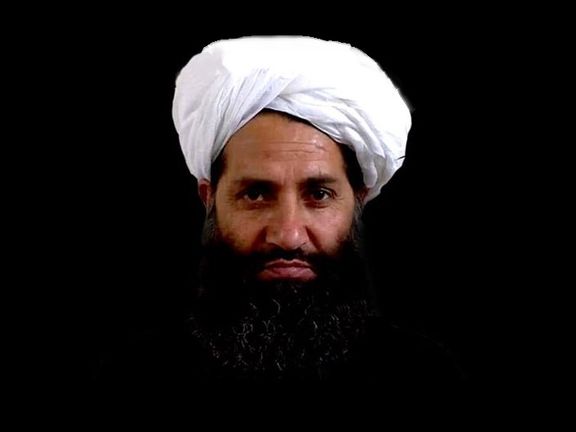Taliban Leader Criticises Trump’s Travel Ban, Calls US ‘Oppressor’

Taliban leader Hibatullah Akhundzada has condemned US President Donald Trump’s new travel ban, labelling the United States an “oppressor.”

Taliban leader Hibatullah Akhundzada has condemned US President Donald Trump’s new travel ban, labelling the United States an “oppressor.”
This marks the Taliban’s first public response to Trump’s decision to bar entry to citizens of 12 countries, including Afghanistan. The order is due to take effect on Monday.
In his Eid al-Adha speech on Saturday, Akhundzada said: “Citizens of 12 countries have been banned from entering America, and Afghans are also not allowed. Why? Because they claim the Afghan government doesn’t have control over its people. So, O oppressor! Is this what you call friendship with humanity?”
He linked the US travel ban to Washington’s role in global conflicts, accusing the United States of responsibility for the deaths of women and children in Gaza.
Criticising those who seek closer ties with Washington, Akhundzada said: “Some people are pleased with friendship with America and consider it a success.” He described the US as the “great oppressor,” claiming that “what it is doing today in Palestine is the same as what it did yesterday in Afghanistan.”
His remarks come as the Taliban continues to seek formal recognition and diplomatic relations with the United States. Taliban officials have repeatedly urged Washington to recognise their government.
Background on the Travel Ban
Trump defended the travel ban which covers nationals from 12 countries, including Afghanistan as a measure to protect US citizens “from aliens who intend to commit terrorist attacks, threaten our national security, espouse hateful ideology, or otherwise exploit the immigration laws for malevolent purposes.”
His administration argued that Afghanistan lacks a credible central authority for issuing passports or civil documents and does not have an adequate system for screening visa applicants.
According to the New York Post, one reason cited for the ban is the high rate at which Afghan nationals overstay their visas in the United States.
Although the ban includes certain exceptions for Afghans who worked with US forces, Trump suspended a key refugee resettlement programme in January, effectively halting support for thousands of Afghans who had cooperated with the United States leaving many in legal limbo and with no clear path forward.